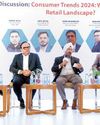PRIVATISING AIR India could turn out to be one of the smartest decisions of the Narendra Modi government.

Laden with a huge debt, shrunken routes, reduced landing rights and deteriorating service, selling Air India is clearly the wisest option.
Air India was effectively ruined by the UPA government from 2007 onwards. Civil aviation minister Praful Patel disastrously merged it with Indian Airlines and gave away the merged entity’s most profitable domestic and international routes to Emirates, Etihad, Jet and other airlines. From being India’s national carrier, accounting for a third of the total passenger traffic, Air India today has just under 14 per cent market share.
If ever there was a wilful destruction of India’s two airlines — Air India and Indian Airlines — the Congressled UPA government and its alliance partner, the Nationalist Congress Party (NCP), did an efficient hatchet job.
Handled well, privatisation could make the airline the Tatas founded in 1932 rise like a Phoenix from the ashes. The key question: are private sector buyers interested in Air India? Apart from Indigo Airlines, which has already officially expressed interest in a letter to the civil aviation ministry, there are several Indian and global airlines and private equity players who would be keen to own Air India.
The Modi government wants a quick sale, perhaps as early as next year. A crucial issue is whether to divest the whole of Air India or sell its subsidiaries (including Air India Express) and other assets in parts. Divesting the airline as a whole would likely fetch a better valuation.
With oil prices low, the economic fundamentals of the aviation industry have improved greatly since 2015. Air India too has cut its annual losses and is operationally profitable. With staff rationalisation and better route utilisation its balance sheet could improve further.
Denne historien er fra August 5, 2017-utgaven av Businessworld.
Start din 7-dagers gratis prøveperiode på Magzter GOLD for å få tilgang til tusenvis av utvalgte premiumhistorier og 9000+ magasiner og aviser.
Allerede abonnent ? Logg på
Denne historien er fra August 5, 2017-utgaven av Businessworld.
Start din 7-dagers gratis prøveperiode på Magzter GOLD for å få tilgang til tusenvis av utvalgte premiumhistorier og 9000+ magasiner og aviser.
Allerede abonnent? Logg på

Technology, AI Driving Warehousing Sustainability
Anshul Singhal on how Welspun One is rapidly transforming Grade-A logistics and industrial parks across India, offering integrated fund development and asset management for large-scale warehousing solutions

DECODING RETAIL'S NEXT FRONTIER
As brands pivot towards omnichannel ecosystems and startups challenge legacy frameworks, the focus sharpens on experiential retail, sustainability and data-driven personalisation.

SORORITY OF WOMEN OF METTLE
Awinter afternoon in mid-December found quite a crowd at the Oxford Book Store on Connaught Place, as bibliophiles congregated at a corner to listen to three women authors, diverse in their passions, but drawn together by an urge to tell their story.

THE LEGACY OF THE AMARNATHS
IN NOVEMBER 2017 the management committee of the Delhi Cricket Association named the eastern stand of the Feroze Shah Kotla ground the Mohinder Amarnath stand.

PUTTING THE POWER IN THE POWERHOUSE
The Asus ExpertBook P5 is powered by an 8-core 8-thread Intel Core Ultra 7 Series 2 processor that clocks a maximum speed of 4.8 GHz, but it does not have hyperthreading. It is light weight, with a smooth glass touch pad. The laptop almost has all the I/O ports you could possibly need in a business laptop, making it an extremely lucrative option for professional computing, says

"We must be aware of our energy and water consumption"
BW Businessworld caught up with actor, philanthropist, and climate warrior BHUMI PEDNEKAR to chat about climate change and more.

"Cooking is a passport to the world"
In conversation with renowned CHEF MANJIT GILL, Advisor at Kikkoman India and President, Indian Federation of Culinary Associations (IFCA). As the former Corporate Chef of ITC hotels, Chef Gill has helped shape iconic restaurants, such as the Bukhara, Dum Pukht, and Dakshin. He has had the privilege of serving former American Presidents Barack Obama, Bill Clinton, George Bush, and the French, Canadian, British and German premiers. In 1992, Chef Gill had the opportunity of being invited to cook for Prince Charles and Lady Diana, at the Palace of the Maharaja of Jaipur. He was awarded the Lifetime Achievement Award from the Ministry of Tourism in 2007.

Strengthening Middle Management for Organisational Resilience
WHAT HOLDS AN organisation together in chaos? Is it visionary leadership, cuttingedge strategies, or robust technology?

The Retail Trailblazers
A look at companies that are making a positive impact on India's growing retail sector with their future fit business and marketing strategies.

Driving Conscious Consumerism
VIDIT JAIN, Co-founder of Kindlife, is leading the charge in revolutionising the intersection of technology and conscious consumerism.